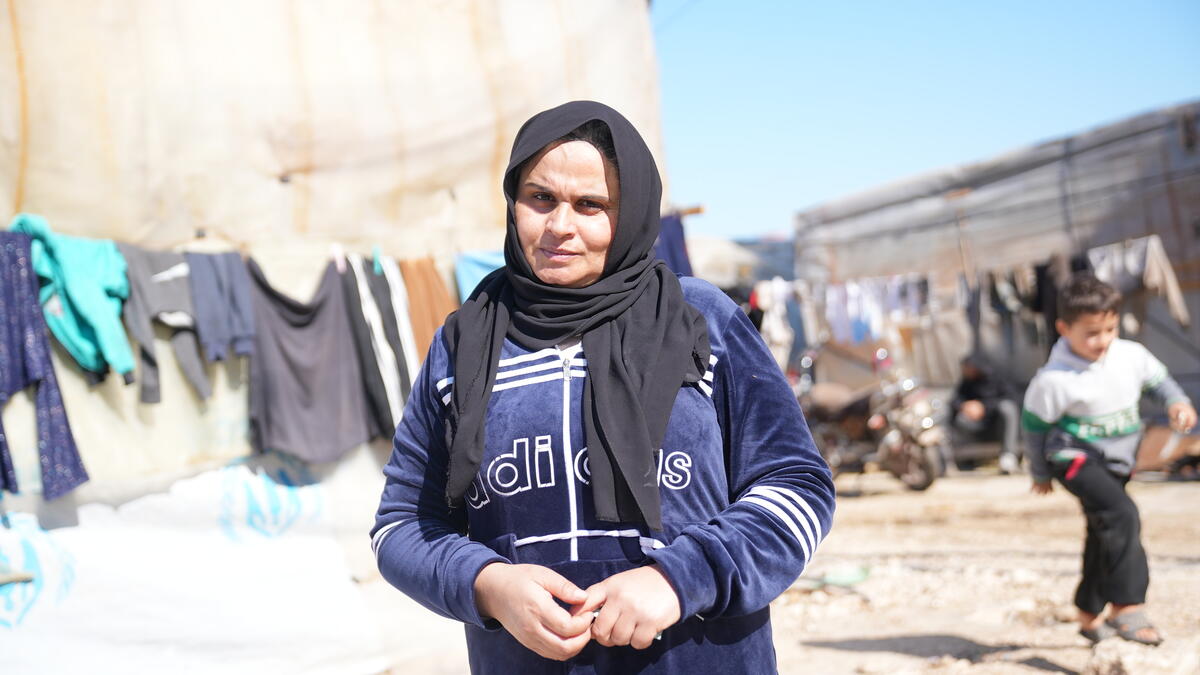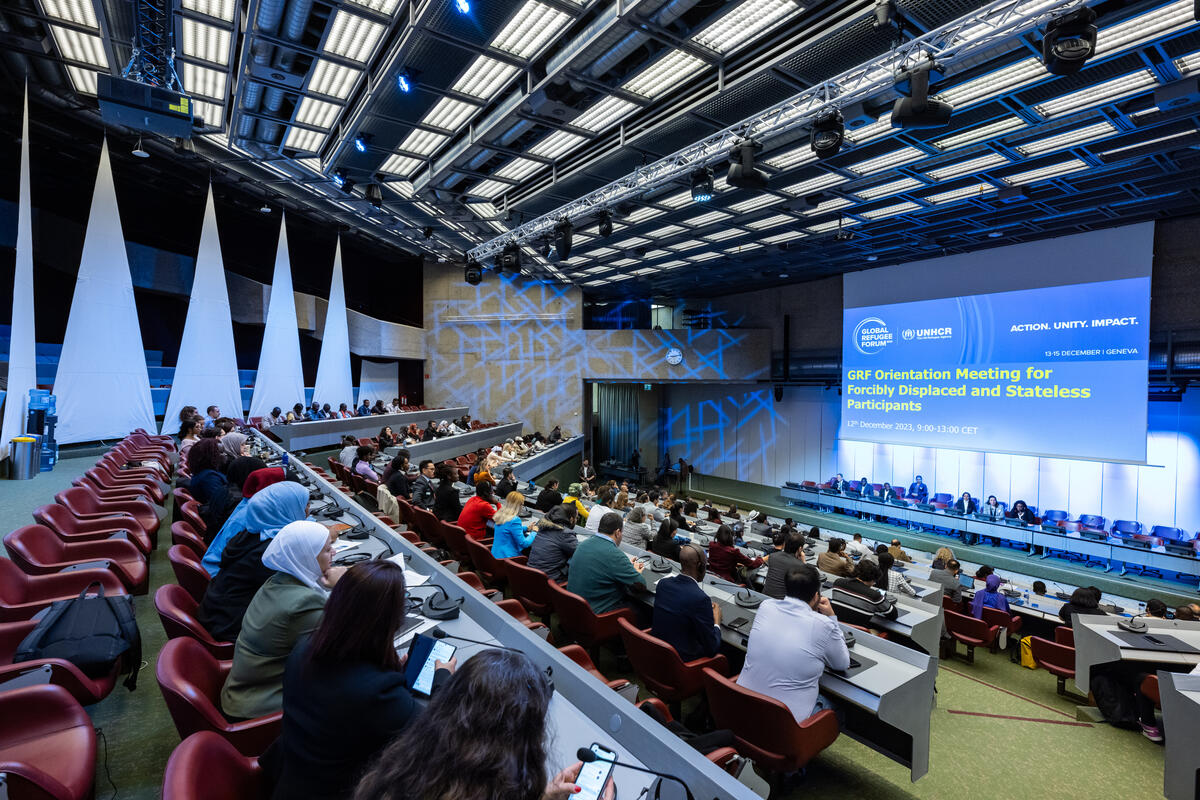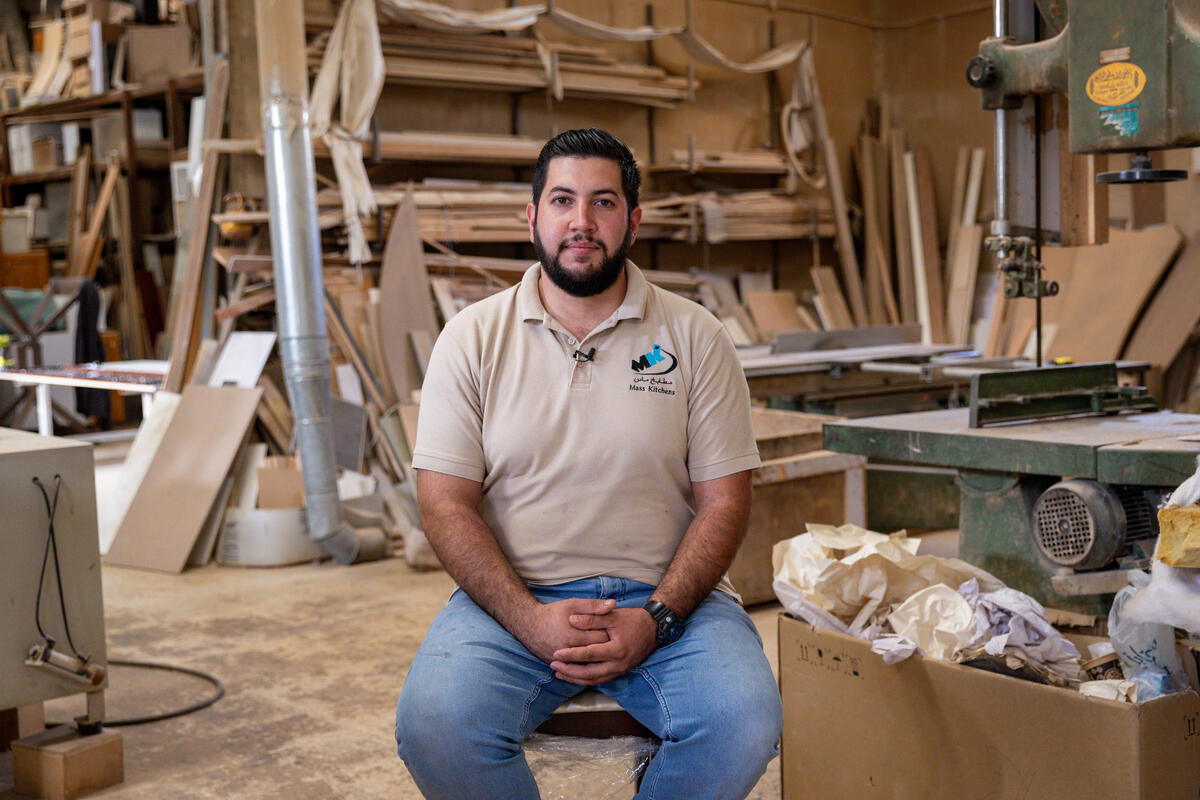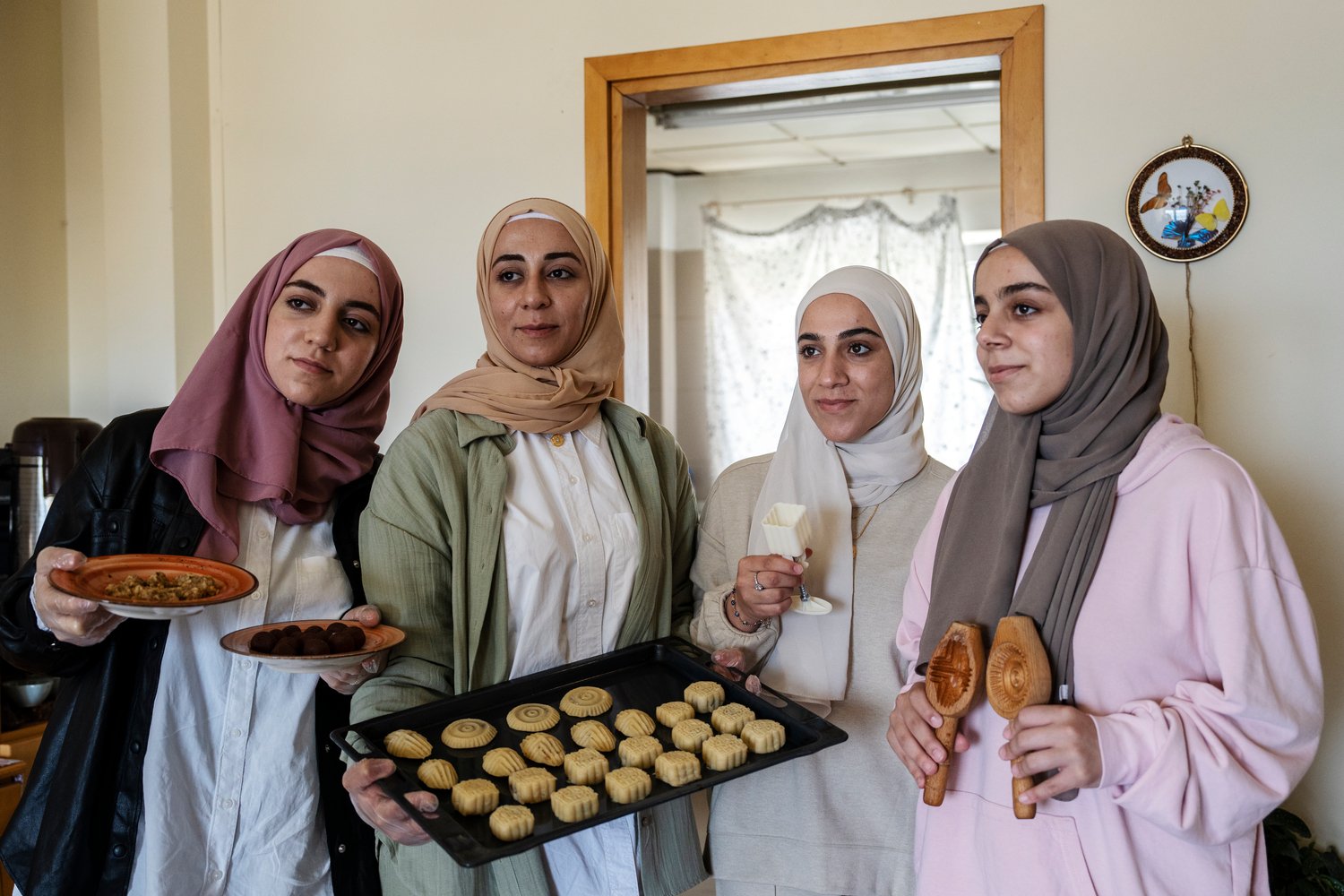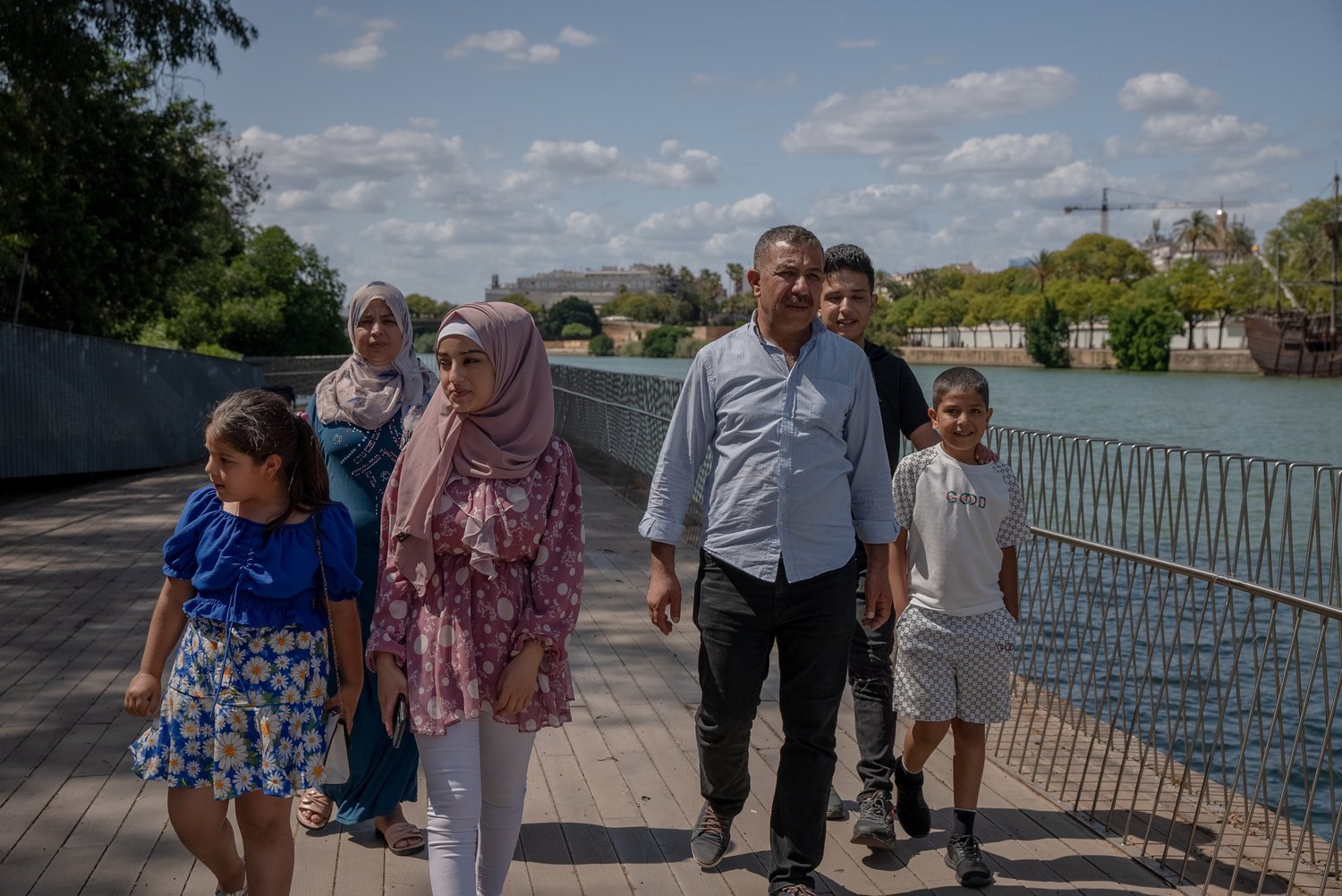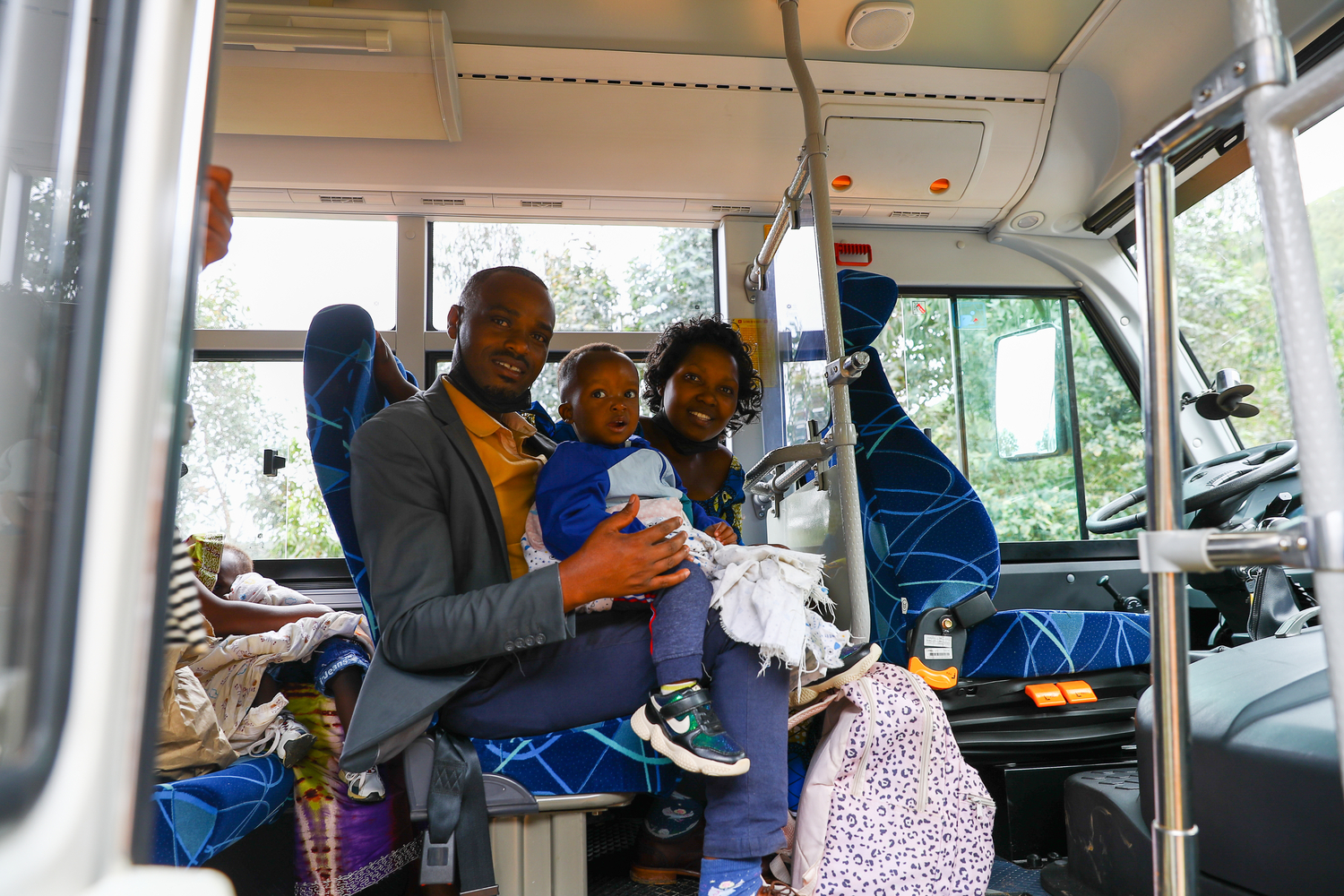Winter preparations underway for tens of thousands of uprooted Syrians
Winter preparations underway for tens of thousands of uprooted Syrians
With Syrian refugee numbers still rising in neighbouring states, UNHCR and its partners are stepping up efforts to prepare for the onset of cold weather over the winter months. We are budgeting more than US$64 million for winter preparations throughout the region, including for displaced Syrians in their own country.
In Jordan, where average temperatures drop to two degrees Celsius between mid-November and mid-March, our plans will focus on two refugee populations - those in camps and those living in the local communities. Of the 105,737 Syrians in Jordan who have registered as refugees or are awaiting registration, a quarter are in the Za'atri camp and the rest are in towns and cities. Our planning estimate is that 250,000 Syrians could need assistance by the end of the year. The estimated budget for winter projects in Jordan is $15 million.
It's expected that many of those registering over the coming weeks will be refugees who have been living in Jordan for some months. Many of these 'urban refugees' have been using their own resources or depending on help from relatives or host Jordanian families.
UNHCR and its partners in Jordan plan to provide additional winter help to at least 10,000 urban refugee families - or some 50,000 individuals. In addition to an existing monthly cash assistance program for the most vulnerable families, we will include an extra winterization amount in November and December. The extra money will range from 50 to 100 Jordanian Dinars (US$70-$140) depending on family size. If sufficient funds are available, the assistance may be extended into January 2013.
In addition, UNHCR will increase the provision of one-time emergency cash assistance grants (100 Jordanian Dinars) as well as a bonus to help cover urgent needs such as clothing, fuel for heating, and rental payments. The majority of those seeking such emergency assistance through four UNHCR 'help desks' in Jordan say they have been threatened with eviction and need help paying the rent.
We will also issue 'basic needs vouchers' which can be used in designated shops across Jordan to purchase winter clothing and a variety of non-food items for use during the winter.
Camps: A winter strategy for Za'atri camp has been prepared by UNHCR partner the Norwegian Refugee Council and includes distribution of a winter package that will include stoves and fuel, warm clothing, high thermal blankets, plastic sheeting, hot water bottles and other items. The kit is in addition to the regular provision to refugees of blankets, sleeping mats, mattresses, jerry cans, kitchen sets, buckets, solar lamps and hygiene kits.
Tent modifications are also planned for better insulation and protection from the elements. This will include an attached "porch" for each tent that will serve as a windbreak and provide a safe space for a kerosene stove.
At the same time, donors are providing more than 2,500 prefabricated family shelters, some 300 of which have already been set up in the camp. Another 500 have been built and will soon be delivered. Foundation and site work is already being done for placing the prefabs on arrival. In addition, a drainage system has been designed for the camp to ensure proper rain runoff during the winter months.
Lebanon: Currently, there are some 94,213 Syrians either registered or awaiting refugee registration in Lebanon - all living in the local community. They are scattered across the country, with the largest concentrations in north Lebanon (55 percent) and the Bekaa Valley (41 percent). More than half rent housing, paying relatively high prices for accommodation. Others live with host families, while the remainder are in collective centres and other structures.
The provision of adequate shelter has been a persistent concern, compounded by continued new arrivals; a lack of available rentals; economic and social pressures in the relatively poor areas where refugees have congregated; and difficulties in obtaining approval to use and rehabilitate empty buildings and vacant land. Lebanese communities have generously welcomed their Syrian neighbours, but this generosity must be supported to meet the growing needs as the refugee population expands and the winter months approach.
The winter plan in Lebanon aims at ensuring that the growing refugee population has accommodation; that the accommodation provides sufficient protection from the cold; and that refugees have enough fuel, warm clothing and other non-food aid items. The total budget for the Lebanon winter programme is US$14.1 million.
UNHCR has budgeted $4.7 million for a programme that will include cash rental assistance for some 3,000 families; renovations to the homes of 1,500 host families; provision of 150 unfinished buildings and collective shelters for up to 1,300 families; 1,000 transitional shelters for those in urgent need, and pre-fabricated shelters for up to 250 families.
To ensure all accommodation is safe and secure against the elements support will be extended to 3,630 households through activities that include roofing of unfinished houses; provision of shelter kits and labour (if required) to winterize sub-standard dwellings; and winterizing tents for refugees living in nomadic tented settlements.
To ensure that refugees have enough non-food aid supplies to get through the cold months, we have budgeted $8.4 million for heating fuel to 26,000 households; 3,000 heaters and cooking stoves; 32,000 winter blankets; and 60,000 $25-vouchers for the purchase of winter clothing.
In Turkey, there are currently 170,000 refugees, 96,000 of whom reside in camps in seven provinces. Around 70,000 others live in urban areas, mostly in provinces close to the Syrian border. The latest Regional Response Plan for Turkey includes UNHCR stockpiling and support for up to 280,000 Syrians in the country by year's end.
The camps are operated by the Turkish government, coordinated by the Disaster and Emergency Management Presidency (AFAD) and implemented by the Turkish Red Crescent Society (TRCS). All needs in the camp are provided by these institutions. UNHCR and the UN system in Turkey provide support under the Revised Regional Response Plan.
In early September, a UNHCR team visited all camps in the region and discussed winter planning with Turkish personnel on the ground and later with officials in Ankara. A number of shelter options are currently under consideration, including the use of pre-fabricated homes in camps located in areas where temperatures are coldest. Some of the pre-fabs are already in place in Oncupinar Camp, Kilis. More are needed.
A winter tent has been developed by Turkey's Disaster and Emergency Management Presidency (AFAD) and the Turkish Red Crescent Society (TRCS), who have ordered 30,000 from a local supplier. Winterized shelter extensions and upgrading and additional weatherproofing of existing tents are also planned.
UNHCR is prepared to offer its support and expertise in a number of areas, including procurement, technical specifications for various types of equipment, compilation of non-food aid packages, supply and logistics. Discussions are also underway to ensure preparedness for the needs of any urban refugees who may ultimately seek shelter in the camps during the winter months.
In Iraq, the number of Syrians seeking asylum is now over 39,000, including 31,863 in the Kurdistan region and 7,173 in Al-Qaem, Anbar governorate.
Three camps have been established, one in Domiz in the north with some 13,000 refugees, and two in Al-Qaem housing around 7,000 people. The remaining refugees are elsewhere in the community, with local families or in public buildings pending the establishment of new camps, including one, for 10,000 people in Domiz, and another for 20,000 in Al-Obaibi, Anbar.
Refugees in the camps are the priority in UNHCR's winter preparations, followed by programmes for those in living in the community and with host families. Winter plans include replacement in of the current light-weight tents in Al-Qaem with 1,230 family tents and the provision of heaters, fuel, thermal blankets, quilts and the replacement of tented schools with heated, pre-fabricated classrooms. Aid packages containing non-food items will be distributed to all newly arriving families.
Winter assistance will also be given to up to 12,000 vulnerable urban refugees, including the provision of kerosene over a three-month period, along with two thermal blankets per person. Depending on the availability of funds UNHCR plans to support some 2,500 host families through cash grants for the purchase of 100 liters of kerosene per family per month for three months.
The total cost of the winter projects in Iraq is estimated at $3,694,500.
In Syria, UNHCR is part of the joint United Nations inter-agency humanitarian response. Preparations for winter are now a priority, with the onset of cold weather presenting additional hardships for hundreds of thousands of Syrians, particularly the displaced. Many have been uprooted multiple times.
UNHCR currently has more than 350 staff and three offices across Syria, enabling us to make a major contribution to the overall inter-agency humanitarian effort for Syrians in the country. Over the next three months, a $32.4 million UNHCR 'Keeping Families Warm' programme will target 500,000 Syrians. The plan is based on three main elements: rehabilitation of communal shelters; distribution of non-food aid; and provision of one-time cash assistance to the vulnerable. Currently, we are $12 million short of being able to fund this. The money is urgently required if we are to complete all of our winterization activities on time, prior to the onset of cold weather.
We plan to rehabilitate 120 communal centres to house uprooted persons. Work will include building partitions and installing windows and doors; heating communal areas; provision of water, sanitation and communal kitchens.
The distribution of non-food aid will include the provision of the standard family assistance package, but with more mattresses, rugs and heavy winter quilts. To date, these relief items have reached 200,000 people across Syria, thanks to the support of the donor community. Subject to funding, we plan to deliver to another 300,000 people by the end of the year.
We will also provide displaced Syrians with cash assistance to cover winter expenses such as heating and electricity bills. To date, over 17,000 people have received such support in Al Nabek, south of Homs.
Refugee Numbers
340,945 Syrian refugees are currently registered or awaiting registration in the region surrounding Syria.
Jordan: The number of Syrian refugees registered or pending registration is 105,737
Lebanon: Total number of Syrian refugees: 94,213 (including 30,297 awaiting registration)
Iraq: Total number of Syrian refugees: 39,036 including 31,863 Syrians hosted in the Kurdistan Region. Since June 2012, 44,883 Iraqis have left Syria for Iraq.
Turkey: (based on Government of Turkey figures dated 6 October) Total number of Syrian refugees registered and assisted by the Government of Turkey in camps: 96,397
For further information on this topic, please contact:
- In Amman: Ron Redmond (Regional Spokesman) on mobile +962 79 982 5867
- Mohammed Abu Asaker on mobile + 971 50 621 3552
- In Geneva: Sybella Wilkes on mobile +41 79 557 91 38

